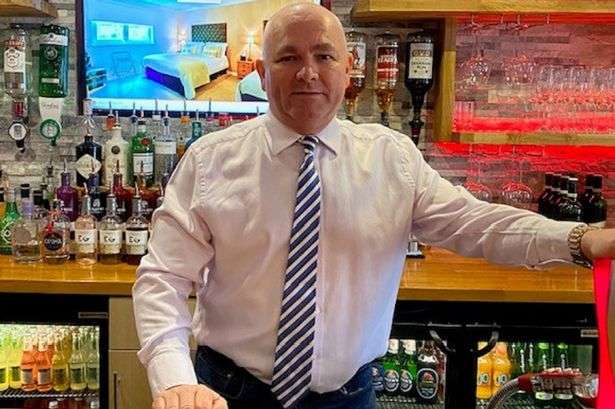In an effort to mitigate ongoing economic downturn impacts, many of Scotland’s pubs are curtailing their operational hours. This initiative will help them reduce expenditures as the overall business has been considerably marred leaving some to remain closed on less patron-popular days.
Contributing a significant blow to the night-time economy, a survey of British Beer and Pub Association members indicated that a third have instituted reduced operating hours to cope with hiking operational costs.
Stephen Montgomery, the director of the Scottish Hospitality Group, states with little astonishment that some pubs have taken to closing as early as 8pm.
Montgomery questions the logic of retaining operational status, bearing staff and escalating electricity costs, in the absence of customers. Some pubs have grown accustomed to not opening at all on particular quieter days.
Stephen brings attention to the fact that the stresses being applied towards pubs seem to be maximized in Scotland, more so than other regions in the UK.
Among the issues, he highlights the tripling, even quadrupling of utility bills but the lack of comparable government support as given to homes via the energy support scheme. Coupled with climbing energy bills, businesses have to brace for a near 10% increase in the national minimum wage over the coming month.
Despite understanding the demands for a higher minimum wage, the funds to meet these demands must be sourced from somewhere. With customers unwilling to bear an increase in prices, pubs have found themselves staying closed especially on Sundays and Mondays when customer influx is at its lowest.
Stephen ardently states that the Scottish Government needs to intensify their support of the industry which is especially important as Scotland seems particularly disadvantaged in dealing with business rates compared to the rest of Great Britain. In an effort of the Scottish Hospitality Group that Stephen leads, a campaign was initiated to secure an emergency 75% business rates relief to match the support provided to the hospitality businesses in England and Wales over the preceding year.
Disappointingly, no such help is available to Scottish businesses, leaving them to pay a third more than their counterparts in England and Wales. Hopes lie in an upcoming meeting with Deputy First Minister Shona Robison, also holding the position of Finance Secretary, to discuss business rates on May 2.
The landscape is not entirely devoid of hopes as some big family-owned businesses are truly flourishing. However, small to medium-sized businesses appear invariably beleaguered. There is a common misconception that the hospitality industry will always be there and be used daily.
Unfortunately, the realization may only come when there are no hospitality establishments remaining on our main streets except for the large corporate companies. Only then will the realization dawn that issues like parking costs in Glasgow and rates have repelled potential investors from England from even considering Scotland.
Stephen advocates for supporting small bars and restaurants as once they shut in a village, that door rarely opens again.
Expressing her concerns, Emma McClarkin, chief executive of the British Beer and Pub Association emphasized that in recent times many pubs have been compelled to reduce their operating hours given the multitude of challenges ranging from ascending energy costs to struggles with recruitment and retention.
This decision is not one taken lightly but a necessary survival strategy in an implacably challenging operating environment. Such conditions warrant government support to alleviate these pressures and ensure these local establishments continue to occupy the central place in our communities and high streets.
Nik Antona, the national chairman of the Campaign for Real Ale (Camra), resonated similar thoughts stating that pubs are grappling against an onslaught of challenges. To save themselves from the looming threat of ongoing economic crises some pubs have decided to close earlier than initially intended.
This strategy is a far better alternative to closing for good and the local community losing its central gathering spot. A stern warning is sent to the government to ramp up their support for UK pubs or risk losing them forever.
Earlier in January, revelations showcased that a cocktail of skyrocketing energy bills, augmented labour costs, and depreciating customer spending capacity caused Scottish pubs to shut down at double the rate of England. Last year saw 89 bars close their doors permanently.
This closure trend resulted in Scotland losing 2% of its total pubs in 2023, contrasting with a rate of 0.9% in England. The numbers dropped from 5184 bars in 2004 north of the Border to 4380 last year.
Anticipating a response on the afore-mentioned concerns, The Scottish Government has been contacted for comment.












